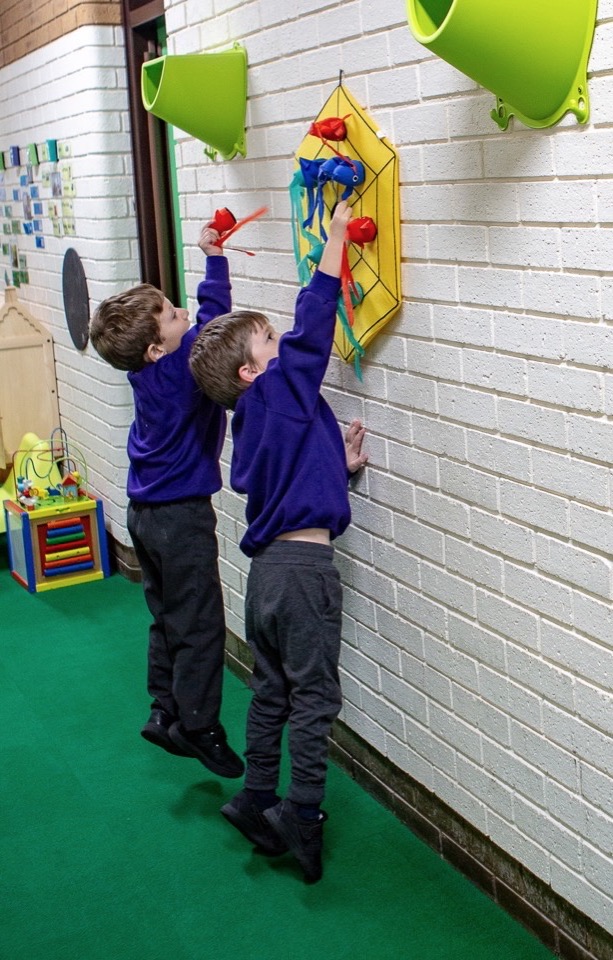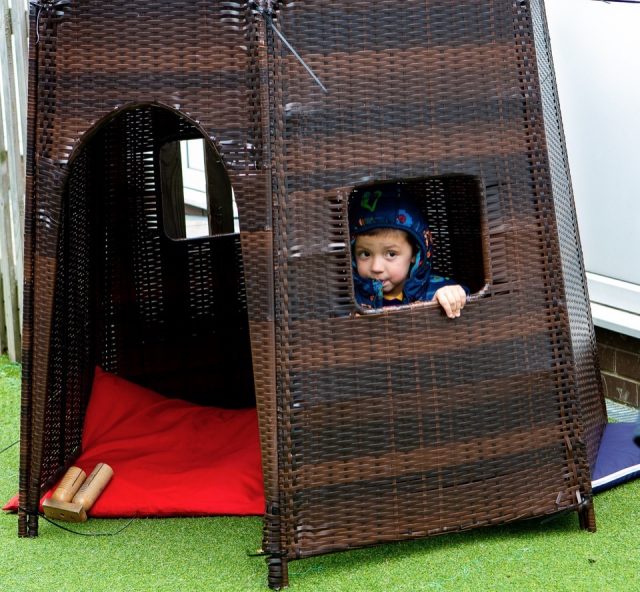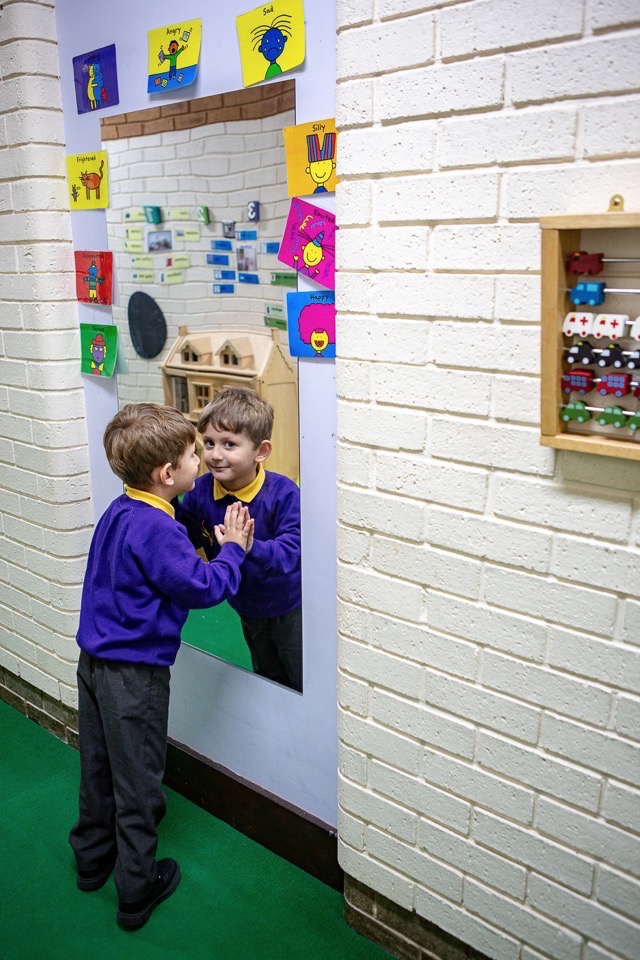Assessment
Assessment is a continuous process integral to learning and teaching. It is how teachers gain knowledge of their pupil’s needs, achievements and abilities, enabling planning and delivery to be more effective, thereby ensuring progress and attainment for every child.
At Phoenix Arch School all pupils are assessed continuously throughout each key stage in ways that are appropriate to and supportive of their individual learning needs. Teachers view the assessing of children’s abilities in a positive way and aim to highlight success and achievement.
EYFS
We assess the whole child on-entry to the reception year (age 4-5yrs) through practitioner knowledge of the child, captured through daily observations and interactions. This enables us to capture children’s well-being & involvement; it is teacher-led and does not disrupt children as they settle in to their new class.
Phoenix Arch uses the baseline assessment data to set expectations of pupil progress throughout the reception year. Progression data is recorded on the school assessment programme, Classroom Monitor. We record progress on small steps within sub-levels of age bands. The progression guidance we set is:
- Must: 1 step within the baseline age band
- Should: 2 steps within the baseline age band
- Could: 3 steps within the baseline age band
On occasion pupils may make more progress than the set must, should, could step targets. This can be due to improved language, communication, and catching up in areas of learning. However, we do not set more than three steps progression as following DfE guidance pupils cannot move on beyond greater depth in ELGs.
Monitoring of progression takes place every half term through:
- Using the EYFS seven areas of learning and development bands: 16-26 months, 22-36 months, 30-50 months and 40-60 months
- Analysis of progress data
- Progress meetings - class teacher and assessment coordinator review progress/ discuss any barriers to learning and intervention support where required
- On-going daily assessment to inform planning next steps to help pupils move on in their learning
- Annual reviews- discussion with head teacher, parents, class teacher and where appropriate Speech and Language / Occupational Therapy.
| Expectations of progression from Reception baseline to Early learning Goals: | |||
| Entry baseline | Must | Should | Could |
| 16-26 months beginning | 16-26 months developing | 16-26months secure | 22-36months beginning |
| 16-26 months developing | 16-26months secure | 22-36months beginning | 22-36months developing |
| 16-26months secure | 22-36months beginning | 22-36months developing | 22-36months secure |
| 22-36months beginning | 22-36months developing | 22-36months secure | 30-50months beginning |
| 22-36months developing | 22-36months secure | 30-50months beginning | 30-50months developing |
| 22-36months secure | 30-50months beginning | 30-50months developing | 30-50months secure |
| 30-50months beginning | 30-50months developing | 30-50months secure | 40-60months beginning |
| 30-50months developing | 30-50months secure | 40-60months beginning | 40-60months developing |
| 30-50months secure | 40-60months beginning | 40-60months developing | 40-60months secure ELG |
| 40-60months beginning | 40-60months developing | 40-60months secure ELG | ELG greater depth |
To support Reception pupils who do not attain the Early Learning Goals at the end of summer term we continue to assess them on the EYFS curriculum in autumn term of the following year. This provides pupils with an extended opportunity to achieve the ELGs. Children who do not attain the ELGs in the autumn term of Year1 are assessed on ‘I can’ statements from Phoenix Arch Development Phases to support small step progress towards the first phase in the Year1 National Curriculum.
Developmental Phases
| Phase progression within phases | |||||
| 10% | 27.5 % | 45% | 65% | 85% | 92.5% |
| beginning | beginning+ | developing | developing+ | secure | exceeding |
We expect pupils on Developmental Phases to make at least:
- 1 Median [Must target]
- 1.5 Upper [Should]
- 2 Exceeding [Could]
We use Developmental Phases to replace P-scale assessment levels. The Development Phases bridge the gap between EYFS & National Curriculum Phases. Any pupils who are not yet ready for assessment on the National Curriculum are assessed using Developmental Phases, which are compiled of precise small step statements. Once pupils reach Development Phase 8 they move to NC Phase 1. Consistent monitoring of pupil progress ensures assessment meets the needs of the individual child. All pupils, where applicable, have a base line assessment on Development Phases to ensure we meet current recommendations of assessment without levels.
Assessment Practice in KS1 and KS2
KS1 and KS2 pupils each have assessment folders for Literacy, Maths and Science containing evidence of progress and attainment against small steps of National Curriculum descriptors.
We track progress half- termly and moderate judgements based on evidence to ensure our data is accurate. We use + sign to track the small steps some of our pupils may make in the phases 1-6; in this way we are accurately tracking progress within a sub phase. Progress is tracked using I can statements which have been broken down into smaller steps to take into consideration the small steps some of our children achieve. We use the progression tracking system to set year on year targets for individual pupils. All pupils have an assessment file with samples of work against the assessment judgements.
| Phase progression within phases | |||||
| 10% | 27.5 % | 45% | 65% | 85% | 92.5% |
| beginning | beginning+ | developing | developing+ | secure | exceeding |
We expect all pupils to make at least:
- 1.5 Median [Must target]
- 2.0 Upper Quartile [Should]
- 3.0 Exceeding [Could ]
Pupils who are assessed within the National Curriculum are assessed using the descriptors from the curriculum broken down to ‘I can‘ statements.
- Some pupils are taught in a phase appropriate for their chronological age and learning. They will remain within that phase and will move to exceeding within that phase until the next academic year; this follows DfE guidelines that pupils will not be assessed in a phase above their age, as they should be taught greater depth of the subject within their age group.
- Some pupils are taught in a phase appropriate for their learning need; which may not be chronological and they will move up to the next phase once they are secure within that phase.
Pupils are not told which phase they are working in as the emphasis is on learning and progression and not the phase they are being assessed in. All relevant information and records are transferred from one year group to the next at the end of the academic year.
Attainment
Below is a graph showing pupil’s attainment using SATs scores as an indicator for attainment. We have amalgamated three years to protect pupil’s identities, as our groups are below five pupils. The pass mark for SATs is 100, meaning some pupils did not achieve the expected standard. All these pupils have made good progress when taking their starting points into account.
You can compare our school’s performance with other schools at:
https://www.compare-school-performance.service.gov.uk/school/101581/phoenix-arch-school





